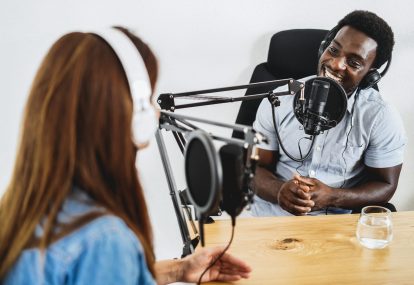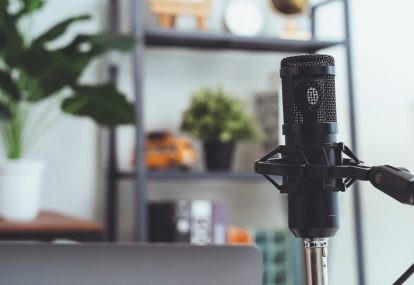Of all the podcasting equipment needed to make your show happen, few are as important and as iconic as the microphone. As with all other kinds of equipment, it pays to know how to choose the best one for your specific needs. Below are the key factors you need to take into consideration before you buy your podcasting microphone:
The Connection Type of the Microphone
When you think about the best microphones to use for podcasting, it is worth remembering that they have the tendency to connect in one of two ways. First, there is the USB connection. This is the more popular and accessible option for a variety of reasons. One would be the simple fact that every personal computer or laptop used today come with USB ports. Due to how common this is, a USB microphone is best suited for those new to podcasting.
Second, there is the XLR connection. What separates this type from the previous one is the fact that it will require more hardware on your end. This may include mixers or a separate audio interface. Once you have the additional hardware, it is only then that you can plug it into your computer. For this reason, the choice to go with an XLR makes it the less versatile choice by default. It does, however, make up for the added complications with its extra audio routing, as well as a plethora of processing options. Those who are looking for the best audio quality may want to consider XLR microphones then.
The Sensitivity of the Microphone
The next key factor in choosing a podcasting microphone would be its sensitivity. Similar to the connection types, this factor typically comes in two different varieties: there are the dynamic microphones and the condenser microphones. By definition, the former is a mic capable of converting sound waves using of electromagnetism to come up with electric signals. This microphone type is known to produce sounds that are warmer and more radio-like.
The latter, on the other hand, possess small conductive membranes that are set near a metal plate. Once sound waves hit the membrane, the distance occupied between it and the metal plate fluctuates, turning the sound into electrical signal. This microphone type is rather sensitive, which makes it capable of creating richer and more natural sounds. The downside of this is the fact that it will have the tendency of pick up on extra noises.
The Recording Space
The third key factor in your choice for a podcasting microphone has less to do now with the mic’s specific attributes. Now, we turn our attention to what recording space you intend to use the microphone in. This is not any less important, however. Many of those who are new to the world of podcast production make the easy mistake of recording in poor or inappropriate environments.
This may lead to the creation of unnecessary noises and reverberation in their audio outputs. Even the highest quality of microphones will not thrive in bad recording spaces. If there isn’t much of a choice on this end, the microphone type that comes most highly suggested would be a dynamic microphone; one with a polar pattern tight enough to be able to limit the echoing that will be picked up.
The Podcast Participants
It needs to be said that microphones often capture sounds in varying patterns. For example, a cardioid microphone is capable of recording sounds in front of it, but not at its sides. There are even those that can record sounds coming from the front and the back, but that is the limit. This is something to take note of because it is ideal for your microphone to only get sounds from its intended speaker.
If your podcast intends to feature a variety of speakers–from lone guests to groups–then how your microphone of choice picks up sound becomes a very important factor. To take the recording of multiple speakers as an example, the recommendation for that scenario is to look into an audio interface that comes with multiple XLR ports. From there, all you have to do is plug your dynamic microphones as needed. A choice like this even has the added benefit of making the post-recording editing easier. Your podcast editor will definitely be most grateful to you in that case.
Finding the right microphone goes beyond just looking at their specifications and prices. But as long as you plan your journey out well enough and you know what to look out for, it won’t be long before your ideal microphone is on hand and ready for use. To learn more about the intricate world of podcasting, there is always the option of booking a free discovery call with Podcast Engineers! Act now to open up the pathway to your well-deserved podcasting success!




